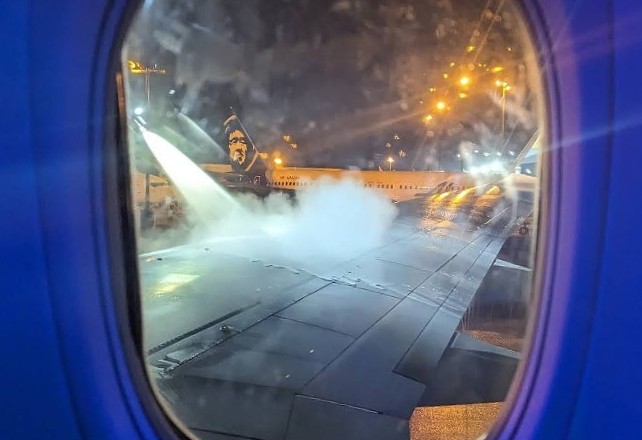
If you watched CNN, MSNBC, or Fox News last night, you might have heard about the fires in California, but it's likely you heard nothing about the ones in Russia and Sweden. Some of these wildfires are occurring near and in the Arctic Circle. Greece just experienced fires that killed 76 people. And a "record-breaking heat wave" killed 65 people in Japan last week. All of this can be attributed to climate change, about which the U.S.'s government is doing absolutely nothing. The heat, the fires, the deaths are simply seen as acts of God. God is killing us and rhinos and penguins and orcas. This is the thinking that dominates our global warming times: If God is doing it, we can do nothing about it; and because God exists, and does everything (the prime mover), we can do nothing about anything outside of the circle what's is marked as purely the human will. In this way, conservative Christians (and I specify this group's concept of the absolute) have created nothing but a real monster. A negative theology is burning large parts of California to the ground. And that's just the half of it.
As Americans are plugged into the never-ending Trump Show, the major networks barely mentioned that Trump's Treasury Secretary, Steven Mnuchin, is planning—by changing the way capital gains are taxed (not by the initial price paid for financial assets but by adjusting that price to inflation)—to transfer over $100 billion to the richest members of this society. And one should not disconnect this massive redistribution of capital with the terrible state of the environment. The two are very much linked. Indeed, the God these conservative Christians go on and on about is first found here. He is in the details of a financial regulatory framework that makes capital more and more scarce for the majority of the population.
What this tax cut will only do is what all other major tax cuts do, which is to increase the scarcity of capital. This increased scarcity puts greater downward pressure on wages because much of the money going to the top is not recycled or recirculated or reinvested, but almost entirely used to purchase financial assets that only grow if what is known as the real economy (which is capital starved) is growing. Wages in this condition will either remain flat or fall as productivity is forced to increase. And as only eco-minded economists know (or bother to know), productivity is tied to the environment by way of energy inputs. This is how the economy stresses the ecosystem. Output is greater inputs.
Now, the fact that the rich do not invest capital into the real economy is by no means commie pinko babble. Mainstream business news reports on it all of the time.
From CNBC:
...As corporations find little else to do with their $2.1 trillion in cash than buy back their own shares or make deals, while individual investors head to the sidelines amid fears that a global trade war could thwart the substantial momentum the U.S. economy has seen this year.
From The Hill:
Publicly traded companies in the restaurant, retail and food manufacturing industries could have paid their workers thousands of dollars more if they had used the money they spent on stock buybacks on wages instead, according to a report released Tuesday.
This is standard stuff. Nothing arcane here. But what is not said is this: By increasing the value of shares, buybacks effectively transfer the bulk of profits and/or government cash from tax cuts directly to shareholders. This process worsens capital scarcity, and this means the real economy (that which has metabolic connections with nature) not only has to work harder to grow the economy at 2 percent or more, but there is no capital allocated to alternatives to the current forms of energy consumption and/or the realignment of inputs and outputs. In mainstream economics there is much talk about "liquidity crisis." But this sort of thing is seen as only a problem for the big borrowers—for example, rich investors who purchased assets on margin. However, the everyday condition of most Americans (or citizens of the global economy) is exactly an ongoing liquidity crisis that, for obvious reasons, has never drawn the interest of the economics profession.
Interestingly enough, the 2014 Greek movie A Blast explores this connection between finance, the scarcity of capital, and the resulting increase of ecosystem devastation. In the film, a Greek family is broke, and about to lose everything it owns—home, business, decent standard of living. Austerity policies imposed by the EU (German and French banks) and IMF are so relentless that the only avenues left to escape their pressure involves the raw destruction of nature. This is the hard decision the family, and particularly its eldest daughter, has to make. The film ends with the Greek countryside on fire. That fire is now instantly recognizable. It looks like the one that just happened not far from Athens.
















